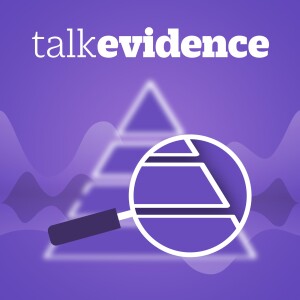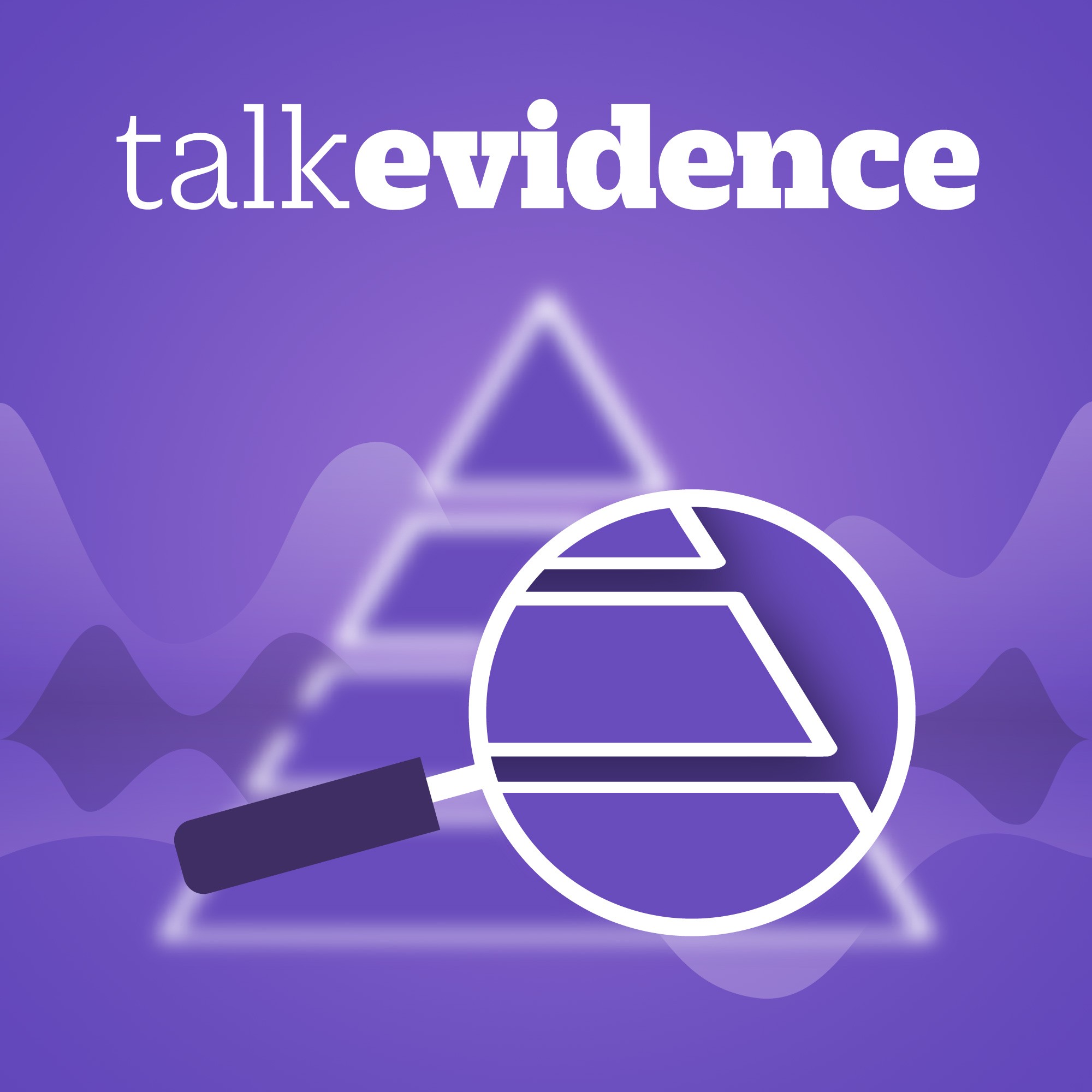Episodes

Friday May 22, 2020
Talk Evidence covid-19 update - strategies to end lockdown, more testing
Friday May 22, 2020
Friday May 22, 2020
This week we're focussing on what kind of information we need to be able to collect and use as the country transitions out of lockdown - and why local lockdowns may be here for some time. We also hear about the new antibody tests which are available in the UK - are they actually a game changer? (2.00) Helen explains what some new evidence says about hydroxychloroquine (spoiler; don’t take it for covid-19) (6.40) *Non covid alert* - Carl tells us about new research on compressions stockings for thromboprophylaxis, and the importance of doing research on non-pharmacological interventions (10.30) David Nabarro, Special Envoy of WHO Director-General on COVID19, (28.00) Helen goes back to Jon Deeks, professor of biostatistics at Birmingham, to find out more about these “accurate” tests for covid, endorsed by the government this week. Reading list: Clinical efficacy of hydroxychloroquine in patients with covid-19 https://www.bmj.com/content/369/bmj.m1844 Hydroxychloroquine in patients with mainly mild to moderate covid-19 https://www.bmj.com/content/369/bmj.m1849 David Nabarro’s website, with daily briefings https://www.4sd.info/ News Covid-19: Two antibody tests are “highly specific” but vary in sensitivity, evaluations find
https://www.bmj.com/content/369/bmj.m2066

Sunday May 17, 2020
Talk evidence covid-19 update - answering questions with big data
Sunday May 17, 2020
Sunday May 17, 2020
Big data is being crunched to help us tackle some of the enormous amount of uncertainty about covid-19, what the symptoms are, fatality rate, treatment options, things we shouldn't be doing. In these podcasts, we're going to try to get away from the headlines and talk about what we need to know - to hopefully give you some insight into these issues. This week. (3.10) Calum Semple, professor of outbreak medicine at the University of Liverpool talks about the ISARIC project - predesigned research brought off the shelf and deployed during a pandemic. (14.20) Ben Goldacre, doctor, researcher and director of the EBM datalab at the University of Oxford, joins us to talk about how his team have managed to pull together records from 40% of NHS patients to look for patterns in covid-19 morbidity and mortality. Reading list OpenSAFELY: factors associated with COVID-19-related hospital death in the linked electronic health records of 17 million adult NHS patients. https://www.medrxiv.org/content/10.1101/2020.05.06.20092999v1 Features of 16,749 hospitalised UK patients with COVID-19 using the ISARIC WHO Clinical Characterisation Protocol
https://www.medrxiv.org/content/10.1101/2020.04.23.20076042v1

Saturday May 09, 2020
Saturday May 09, 2020
For the next few months Talk Evidence is going to focus on the new corona virus pandemic. There is an enormous amount of uncertainty about the disease, what the symptoms are, fatality rate, treatment options, things we shouldn't be doing. We're going to try to get away from the headlines and talk about what we need to know - to hopefully give you some insight into these issues. This week: (1.20) Carl gives us an update on the England and Wales admission data. (3.00) Helen talks about ways in which spread and severity of infection amongst household contacts. (8.20) We talk natural history of covid-19, and Harlan Krumholz, cardiologist at Yale, tells us what we know, and why it's difficult to have a full picture at the moment. (15.10) Helen picks up on a study from Tim Spectre and colleagues using an app to track cases. (20.00) Henry Scowcroft, one of The BMJ's patient editor, who also works for Cancer Research UK, joins us to talk about patients who are taking part in clinical trials, and how this is affecting them. He also touches on the thin patient participation in the design of covid treatment guidelines. (24.10) Carl talks rapidity of publishing, and where researchers should most target their evidence outreach. Reading list: Reducing risks from coronavirus transmission in the home https://www.bmj.com/content/369/bmj.m1728 Rapid implementation of mobile technology for real-time epidemiology of COVID-19 https://science.sciencemag.org/content/sci/early/2020/05/04/science.abc0473.full.pdf The BMJ Public and Patient participation twitter chat
https://twitter.com/hashtag/BMJdebate

Monday May 04, 2020
Monday May 04, 2020
For the next few months Talk Evidence is going to focus on the new corona virus pandemic. There is an enormous amount of uncertainty about the disease, what the symptoms are, fatality rate, treatment options, things we shouldn't be doing. We're going to try to get away from the headlines and talk about what we need to know - to hopefully give you some insight into these issues. This week: (1.10) Carl gives us an update on the UK's figures, and how deaths outside are now being counted. (2.10) When the pandemic slows down, and normal services resume - what should we start doing first? Helen picks up some evidence on what they might be. (6.05) There's a signal that covid-19 may be causing coagulopathies in some patients, and Helen picks up on a listeners request for more information. (11.22) John Deeks, professor of Biostatistics at the University of Birmingham, is leading a Cochrane initiative into examining the evidence around testing, and rivals Carl's rant when he explains how some research is being done behind a veil of confidentiality.
(35.27) When there's a lot of uncertainty, and the stakes are very high, then tempers can flare. Vinay Prasad, hematologist-oncologist in the US, and host of Plenary Sessions podcast, joins us to talk about having a good, respectful, scientific debate.

Friday Apr 24, 2020
Talk Evidence covid-19 update - covid ethics, waste and a minimum RCT size
Friday Apr 24, 2020
Friday Apr 24, 2020
For the next few months Talk Evidence is going to focus on the new corona virus pandemic. There is an enormous amount of uncertainty about the disease, what the symptoms are, fatality rate, treatment options, things we shouldn't be doing. We're going to try to get away from the headlines and talk about what we need to know - to hopefully give you some insight into these issues. This week: (1.00) Carl gives us an update on the UK’s covid-19 related mortality (7.40) When the evidence is uncertain, and the outcomes so massive, then the ethical dimensions of decisions become even more apparent. Helen talks ethics in guidelines with Julian Sheather, advisor on ethics and human rights to the BMA and MSF. (25.37) Update on covid-19 research, looking at viral particle shedding.
(29.24) We’ve mentioned the potential wasted effort in covid-19 research, and Helen speaks to Paul Glaziou, director of the Institute for Evidence Based Research at Bond University, about the waste he’s already seen, and ways in which it could be avoided.

Friday Apr 17, 2020
Talk Evidence covid-19 update - Remdesivir, care homes, and death data
Friday Apr 17, 2020
Friday Apr 17, 2020
For the next few months Talk Evidence is going to focus on the new corona virus pandemic. There is an enormous amount of uncertainty about the disease, what the symptoms are, fatality rate, treatment options, things we shouldn't be doing. We're going to try to get away from the headlines and talk about what we need to know - to hopefully give you some insight into these issues. This week: (3.14) Jeff Aronson from Oxford University explains why remdesivir is a potential therapeutic, but is pessimistic about the quality of the studies being done on it (13.22) Carl explains why smoking cessation is still a key public health priority under covid-19 (16.30) Helen talks care homes, and interviews Mona Koshkouei, from Oxford University, about the research which shows staff are the main vector of infection. (27.20) David Spiegelhalter, professor of public understanding of risk, looks at the new data on excess deaths in the UK - and the difficulties with reporting that underlie it. Carl explains how deaths track infections, and why uncertainty there makes it hard to calcuate the case fatality rate (And why that is not a good measure to use in a pandemic) Reading list. Compassionate Use of Remdesivir for Patients with Severe Covid-19 https://www.nejm.org/doi/full/10.1056/NEJMoa2007016 How can pandemic spreads be contained in care homes? https://www.cebm.net/covid-19/how-can-pandemic-spreads-be-contained-in-care-homes/ Covid-19: Death rate in England and Wales reaches record high because of covid-19
https://www.bmj.com/node/1024784.full

Monday Apr 13, 2020
Monday Apr 13, 2020
For the next few months Talk Evidence is going to focus on the new corona virus pandemic. There is an enormous amount of uncertainty about the disease, what the symptoms are, fatality rate, treatment options, things we shouldn't be doing. We're going to try to get away from the headlines and talk about what we need to know - to hopefully give you some insight into these issues. This week: (2.24) - Hydroxychloroquinine/chloroquinine - Robin Ferner, honorary professor of clinical pharmacology at the University of Birmingham explains why is it a potential therapeutic for covid-19, and why is it being hyped. (12.45) - We use prognostic models to make treatment decisions, but they have to be well conducted. Lots of them are being created for covid-19, but their quality isn’t great. Statisticians Laure Wynants Maastricht University and Maarten van Smeden from Utrecht University have done a systematic review of these models, and explain what’s needed for them to be useful. (26.30) PPE - specifically facemasks. What does the evidence say about their use by the public, and does the precautionary principle hold Reading list: COVID-19 rapid guideline: managing suspected or confirmed pneumonia in adults in the community https://www.nice.org.uk/guidance/ng165/chapter/4-Managing-suspected-or-confirmed-pneumonia Chloroquine and hydroxychloroquine in covid-19 https://www.bmj.com/content/369/bmj.m1432 Prediction models for diagnosis and prognosis of covid-19 infection: systematic review and critical appraisal https://www.bmj.com/content/369/bmj.m1328 What is the efficacy of standard face masks compared to respirator masks in preventing COVID-type respiratory illnesses in primary care staff?
https://www.cebm.net/covid-19/what-is-the-efficacy-of-standard-face-masks-compared-to-respirator-masks-in-preventing-covid-type-respiratory-illnesses-in-primary-care-staff/

Thursday Apr 09, 2020
Talk Evidence covid-19 update - pneumonia, guidelines, preprints and testing
Thursday Apr 09, 2020
Thursday Apr 09, 2020
For the next few months Talk Evidence is going to focus on the new corona virus pandemic. There is an enormous amount of uncertainty about the disease, what the symptoms are, fatality rate, treatment options, things we shouldn't be doing. We're going to try to get away from the headlines and talk about what we need to know - to hopefully give you some insight into these issues. This week 5.00 - Carl gives us an update about pneumonia in primary care, should you give antibiotics when you're not sure if it's bacterial or viral 10.00 - The importance and difficulty of making guidelines now 15.00 - We hear from guideline maker Per Vandvik, about making guidance. 21.40 - Preprint servers for medicine are showing their use in this fast changing situation. Joseph Ross from Yale School of Medicine, and one of The BMJ's research editors, talks to us about the kind of information we're seeing on medRxiv. 31.10 - Testing. What are the tests, and when do we want specificity, and when do we want sensitivity. Nick Beeching from the Liverpool School of Tropical Medicine joins us to explain. Reading list: www.bmj.com/coronavirus Rapidly managing pneumonia in older people during a pandemic https://www.cebm.net/covid-19/rapidly-managing-pneumonia-in-older-people-during-a-pandemic/ https://www.medrxiv.org/ Covid-19: testing times
https://www.bmj.com/content/369/bmj.m1403

